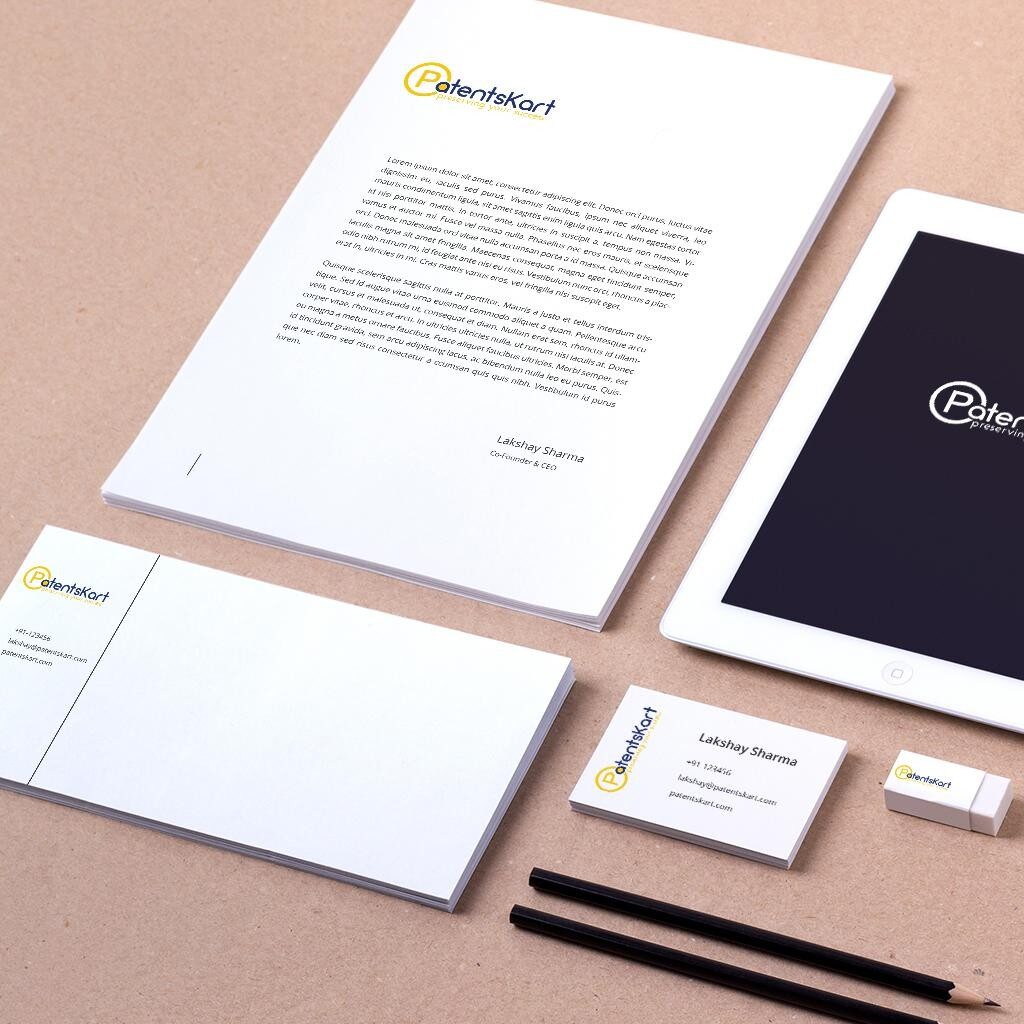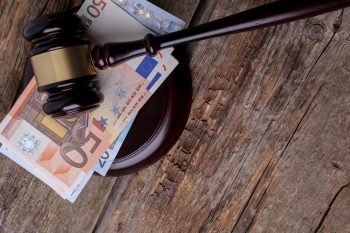Find the design that matches your invention
Find the design that matches your invention

Design Class based searches

Image based content retrieval

Quick turnaround time

Competitive Billing rates

A design patent application undergoes a thorough review and examination by The United States Patent and Trademark Office (USPTO). For your designs to be granted as registered design patents, they must be novel and non-obvious compared with existing industrial designs identified through a comprehensive design search, ensuring your intellectual property is unique and well-protected
Proper design patent planning is essential to secure robust intellectual property protection. Modifying design patent drawings to include multiple embodiments or variations of the claimed design helps broaden coverage. This can include changes in size, shape, or proportions. Additionally, minor features may be illustrated in dashed or hidden lines to expand the scope of protection in your design patent application.
Designers should secure a design patent to protect their industrial designs from copying by competitors or rival brands, ensuring that no one can infringe upon the unique design features of your invention.
This is what freedom to operate search helps get the answer to.
The legal status of each relevant reference | Product to patent claim maps | 5-7 business days turnaround time | Customized and free of cost quotes
Industrial designs are some of the most valuable properties in a country, and they're found all over Europe. In contrast to America's examination system where you have to register your design with local authorities (patent office) once it meets certain requirements - for instance, being approved for protection by that particular jurisdiction- foreigners must follow suit if they want their work protected under community or industrial design law.
Substantive examination, or the comparison of a design application for which registration is being looked for with prior existing designs, typically only occurs if or when an infringing party has been identified.
Foreign design filing can either be done on a country-by-country basis or by filing an international design application.
The International Design System - for the Registration of Industrial Designs is a revolutionary way to register your industrial design. Utilizing this system, you can file in over fifty countries with just one application and get instant worldwide protection.
If you want to take advantage of U.S.-based design patents, remember to make any foreign filings within six months of a prior U.S. filing date to prioritize benefit over their own country's system and avoid being statutorily barred from seeking protection under this type of law.
The Ultimate Guide to Getting a Design Patent Overseas


From a practical perspective, design patents offer a faster route to intellectual property protection. USPTO examination typically completes within 12 months, compared with the 2–3 years (or more) for utility patents. Expedited examination of a U.S. design application is also available.
Design patents offer several advantages over utility patents. They are generally more cost-effective, with lower filing fees and no maintenance fees once the patent is granted. Additionally, the allowance rate for design patent applications is significantly higher, and design patents can typically be obtained much faster than utility patents, providing quicker intellectual property protection for your product designs.
Design patents offer similar advantages as utility patents. Once your design patent application is filed, the product can be marked as patent pending. After the design patent is officially granted, you can update the marking to patented, signaling strong intellectual property protection for your innovative designs.
Consult a patent attorney because, legally, design patents are an effective tool to prevent or stop knockoffs and publicly showcase the status of your design patent. They also help protect your intellectual property by preventing the importation of infringing products.
Further, design patents provide limited protection compared to utility patents since design patents cannot protect against third-party copying of a functional or structural innovation unless the innovation includes a configuration or shape that was also copied.
We will answer your questions, scope your project and discuss your potential fit in style.


Upon receiving your design patent application, the USPTO assigns a filing date. An examiner then reviews the application to ensure the design meets eligibility requirements and is novel, non-obvious, and not already patented or in use. The patent examination process can take several months to several years, depending on the complexity of the design filing.
A design patent protects the appearance of a product and not the product’s function. Without any doubt, design patents are more reasonable and faster to get than utility patents. The lower cost and lower chance of refusals certainly make design patents an attractive choice for cash-strapped startups pursuing some protection. Moreover, design patents tend to issue much faster than utility patents. In addition, if the appearance of your concept or product is arguably exceptional, then it would appear wisely to file a design patent. Design patents can cover an entire product’s shape, color, and design or only a part of a product.
Design patent covers visual ornamental features, including consumer and industrial products, packaging, medical devices, related tools, sports equipment, jewelry, and even web-based and mobile graphical user interfaces and icons.
Design patents shield the ornamental features of a product, not its function. This allows for protecting designs with a distinctive visual appearance, regardless of whether or not the product is functionally novel. As a result, design patents can benefit larger companies looking to boost an already existing IP portfolio and for smaller companies creating their IP portfolio from the ground level.
Design patents may offer several significant benefits in creating an IP portfolio-
The design patent protects non-functional, morally form either configuration or shape and aesthetic characteristics of a patentable subject issue. The item must yet fulfill the subject-matter needs for a patent, as the design must be inseparable from the object to which it is attached. The structure of the creation must also meet originality and requirements of non-obviousness.
Follow the given steps to accomplish a design patent search to discover a solid prior art-
1. Searching on Product Review Websites
Product review websites are among the most suitable places to get all our queries responded to, even in prior art searches. Moreover, since the sites are loaded with product reviews of almost every product established in the market, these are some of the most suitable places to explore if any existing products might be competent in invalidating the design
2.Product Prototype Search
While executing a design patent search, product review websites are a great place to shoot. However, they have their limitations. Product reviews are restricted to products that have already been launched or are about to be established. However, prototypes can be a dependable source for finding a stunning design before art.
3.Exploring for Prior Art in Product Design Illustrations
Each product in existence today was once a concept illustrated in a graphic or a sketch. Though a product may vary from the way it was initially designed, drawings still serve as a good form of the prior art. Hence, it is essential to look at the product designs and drawings displayed by creators or companies simulating the product to validate whether the design is unique.
5.Exploring on E-commerce Websites to Invalidate a Design Patent
What do you think of the word e-commerce websites? Shopping? Fantastic prices? Type? For us, these platforms are a superb advent to accomplish design searches. Almost every product in the world is in front of our eyes, remaining to validate or invalidate the client plan.
6.Geography Based Search
When a patent is interested in litigation, you must expand your search to Non-English geographies where many new designs are patented, conceptualized, or produced. Since most prior art searches are often restricted to European or USPTO databases, it is usually the case that designs that so far exist in different parts of the world would clear the test of creativity in the US due to a narrow search.
Patents vary widely in type, complexity, the extent of coverage, length of depiction, etc. The query of cost, therefore, relies upon certain critical factors. Perhaps the most vital cost factor is deciding between a design or utility patent.
Designers and creators who don’t understand the design patent cost might never use it. Of course, if you hire a legal expert for the design patent process, the price is higher, but it comes with several advantages.
A right patent lawyer comprehends the process of applying. They will also know how to explore the database considerably to see if a design identical to yours already has a patent. Discovering this early in the process could save you money and time. The cost of a design patent is less than getting a utility patent. There are some reasons that inventors and innovators choose design patents instead of utility patents.
Comprehending the design patent cost upfront helps bypass undesirable surprises. For example, some inventors find themselves in dire financial situations because they don’t know how much it would cost.
If the fee for filing for a design patent is high, you have some options. First, you can present your product to the public and associate with investors. Some inventors choose crowdfunding websites to boost enough money to register for a design patent. Another alternative is to wait to display your concept until you can preserve enough money for the design patent cost.
You also want to comprehend the design patent cost before starting the application. While the application fee isn’t high, other prices are much involved. Working with an expert patent lawyer also adds more costs. However, the lawyer will function on the design patent through the whole process. Some designers receive a patent and then learn it doesn’t protect all the aspects of their designs. You don’t want to expend the time and money only to find that your patent won’t cover your design.
United States-13521, 58th St. SE Snohomish, WA – 98290, USA
INDIA - PatentsKart B1, Netsmartz House, IT Park, Chandigarh - 160101